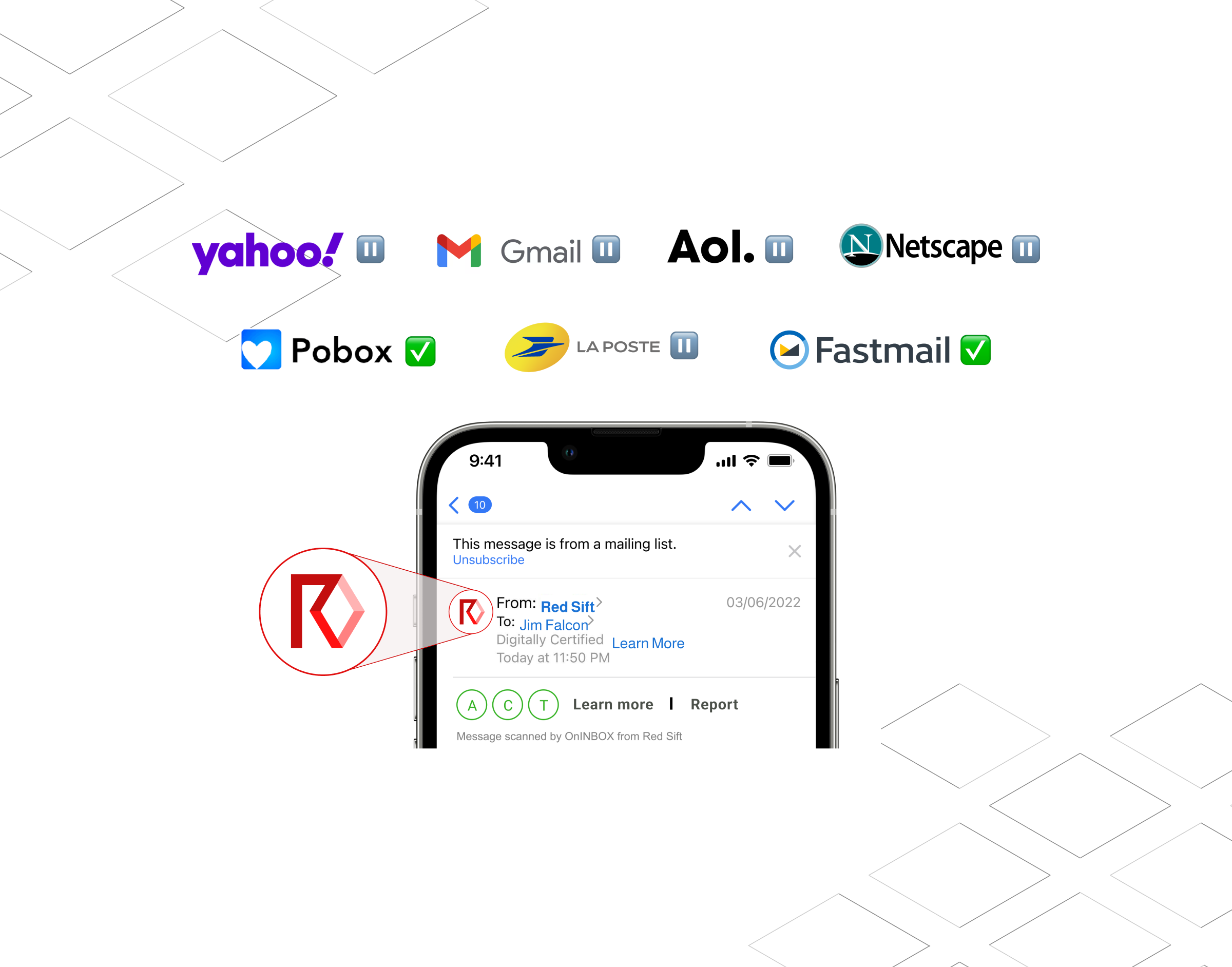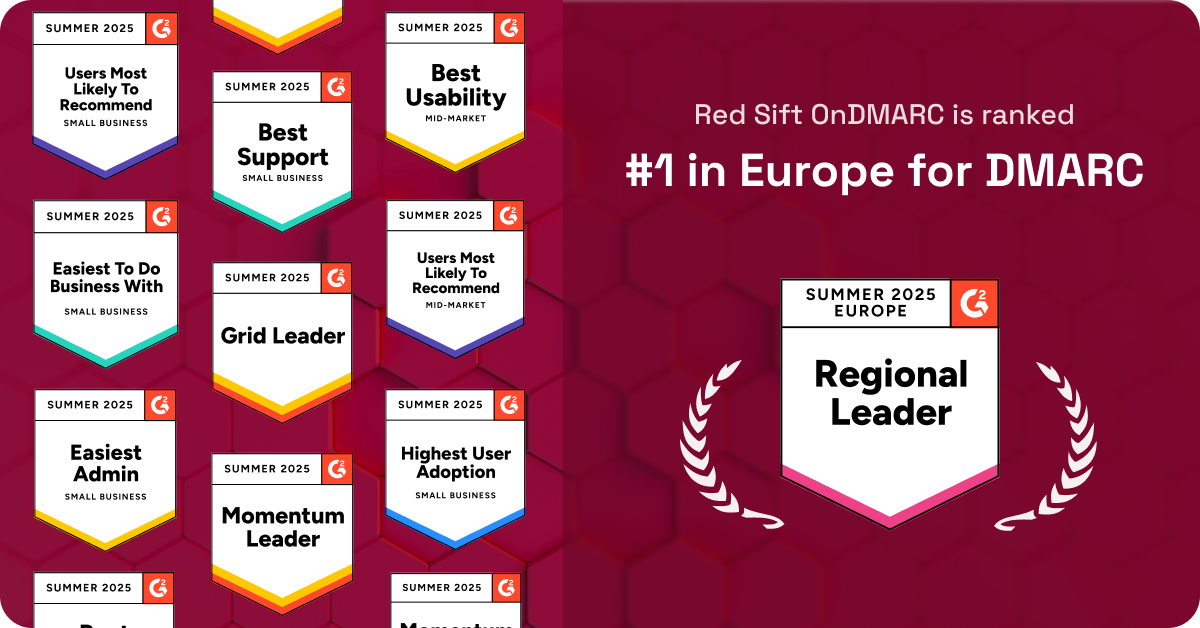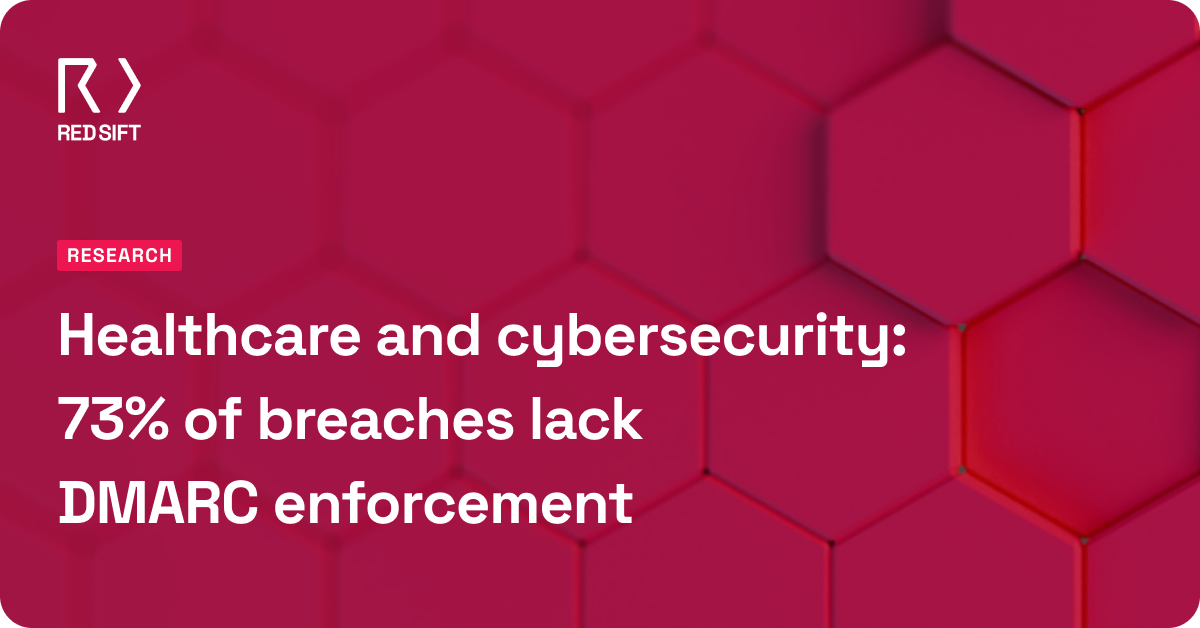With the release of macOS Ventura, iOS 16, and iPadOS 16, Apple added support for BIMI with the Verified Mark Certificate (VMC). Now, it has released new documentation that prepares any email provider on how to enable support for BIMI in Apple Mail. This means that BIMI with the VMC is able to reach more users due to Apple Mail’s client usage which is more than 57% and ~90% of the total BIMI-capable market share according to Litmus’ email client market share.
In the documentation released, Apple explains that Apple Mail will now support BIMI from any compatible mail provider that has implemented VMC support into their mail systems.
This is great news for the industry, as now any mail provider can take advantage of Apple Mail’s extensive market share to enhance the confidence that a digitally certified email provides the end user.
How does BIMI work in Apple Mail?
Because Apple Mail is an email client, BIMI compliance is managed by the mail provider on their server. To make sure a message is compliant, Apple has devised a few requirements that the mail provider must meet in order for Apple Mail to display the logo. These requirements are as follows:
- Ensured message and domain compliance according to the BIMI specification using DMARC.
- The domain has a valid VMC.
- The required headers vouching for these checks described under “Support Apple Mail clients” are present.
These requirements help providers that currently support BIMI, such as Google and Yahoo, expand the reach of their implementations and deliver a consistent, unified experience across all platforms.
As of today, our research shows that Fastmail is the only provider that adheres to Apple’s requirements, therefore Fastmail customers that have their accounts in Apple Mail will see BIMI.
What does this mean for the future of BIMI with VMC?
Implementing BIMI with VMC, which uses the DMARC protocol to ensure authentication, is the only way that senders can ensure their logo is seen in the inbox – and senders can trust that the email is verified.
Apple’s move to support BIMI-compliant emails from any email provider, provided that the senders have the security requirements (VMC) in place, is fantastic news all around. For brands that have implemented BIMI with the correct validations, it means that their logo will now appear in the inboxes of 90% of consumers.
Hundreds of millions of users will benefit from BIMI, both in user experience and security. In research with Entrust, we found that at least 84% of participants agreed or strongly agreed that seeing a verified logo would improve their confidence in an email.
The support for digitally certified email and VMC should be a strong driver for adopting security protocol DMARC and the VMC. This casts BIMI in a new perspective as an indicator for “visual trust”.
Get VMC verified and reap the benefits – or risk falling behind
Apple’s industry-leading full support for VMC-authenticated senders from supported email providers will allow brands to show their verified logos in Apple Mail inboxes across any supporting email provider. This presents an even stronger incentive for businesses to implement DMARC and the VMC.
Red Sift is the leading provider of DMARC solutions and the only provider to offer an integrated, one-stop BIMI certification journey. Via Entrust, Red Sift has issued more VMCs than any other DMARC provider.
Through our partnership with Entrust, we’re creating more value by enabling organizations to manage their logo and obtain VMCs from Entrust directly through OnDMARC. As a result, it’s easier than ever for brands to ensure a safe, immersive experience for recipients of their outbound emails.
Find out more about BIMI with our free resource pack or get in touch today to book your free consultation with the team, and get started on your journey to better email with BIMI.







